Western Diet Hinders Gut Microbiome Recovery Post-Antibiotics, Increasing Infection Risk
A new study on mice reveals that a Western diet, high in processed foods and low in fiber, significantly impedes the gut microbiome's ability to recover after antibiotic treatment, leading to increased susceptibility to infections like Salmonella. Conversely, a fiber-rich diet promotes rapid microbiome restoration. The research underscores the critical role of diet in gut health and suggests dietary interventions as a strategy to rebuild the microbiota post-treatment.

 Neuroscience News
Neuroscience News
 Stanford Report
Stanford Report
 Nature
Nature
 Medical Xpress
Medical Xpress
Western Diet Impairs Gut Microbiome Recovery After Antibiotics, Increasing Infection Risk
A study on mice reveals that a Western-style diet, high in processed foods and low in fiber, prevents the gut microbiome from recovering after antibiotics, leading to increased susceptibility to infections like Salmonella. In contrast, a fiber-rich diet promotes rapid microbiome restoration. The research highlights the significant role of diet in gut health and suggests dietary interventions could improve gut microbiota after medical treatments.

 Neuroscience News
Neuroscience News
 Nature
Nature
 Medical Xpress
Medical Xpress
 Stanford Report
Stanford Report
Early Alzheimer's Detection: Biomarkers Identified in Young Adults and Genetic Predictors Found
Recent studies suggest that early detection of Alzheimer's disease is becoming more feasible. Research identifies biomarkers in young adults, genetic predictors for familial Alzheimer's, and a blood signal that could warn of the disease up to a decade before symptoms appear. These advances offer potential for earlier intervention and more effective treatment strategies.

 AOL.com
AOL.com
 ScienceAlert
ScienceAlert
 MedicalNewsToday
MedicalNewsToday
 Medical Xpress
Medical Xpress
Protein Consumption Trends: Balancing Health Benefits with Potential Overconsumption
This article synthesizes recent news reports concerning the increased emphasis on protein in food products and diets. It explores the reasons behind this trend, including perceived nutritional deficiencies and marketing strategies, while also examining the potential downsides of overconsumption and the importance of balanced nutrition. It highlights the complexities and nuances in the debate around optimal protein intake.

 vox.com
vox.com
 News.com.au
News.com.au
 Finshots
Finshots
 Free Press Journal
Free Press Journal
Debunking Protein Myths: How Much Do You Really Need for Muscle Building?
This article examines the pervasive myth of excessive protein intake for muscle growth, presenting evidence-based recommendations for optimal protein consumption based on activity level and dietary preferences. It also highlights the benefits and potential drawbacks of high-protein diets while debunking misconceptions about plant-based protein sources.

 vox.com
vox.com
 Medscape
Medscape
 CNET
CNET
 Florida State University News
Florida State University News
Vaccines: Key Facts, Types, Safety, and the Fight Against Misinformation
This article provides a comprehensive overview of vaccines, detailing their mechanisms, types (including mRNA and vector vaccines), and global impact. It addresses common myths, emphasizes vaccine safety, and underscores the importance of vaccination in humanitarian crises and combating diseases, while highlighting the role of healthcare professionals in dispelling misinformation.

 Big Think
Big Think
 MSF UK
MSF UK
 USA Today
USA Today
Marin County Sees 44% Increase in Tuberculosis Cases, Prompting Health Advisory
Marin County is experiencing a surge in active tuberculosis cases, with a 44% increase reported in 2024. This rise has prompted the public health office to issue an advisory, emphasizing the importance of screening and treatment. The increase is notable among younger residents, differing from the typical pattern of older nursing home residents. Health officials are working to raise awareness and improve early detection efforts.
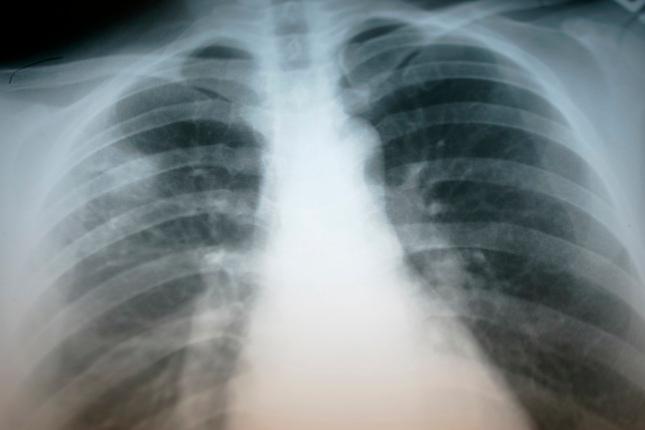
 Marin Independent Journal
Marin Independent Journal
Measles Outbreak in North Dakota: Nine Cases Confirmed, Unvaccinated Individuals Affected
An outbreak of measles in North Dakota's Williams County has reached nine confirmed cases, all among unvaccinated individuals. The outbreak, the first in the state since 2011, has prompted health officials to recommend vaccination and monitor for symptoms. Exposure sites include schools and a Walmart, raising concerns about community transmission and underscoring the importance of vaccination.
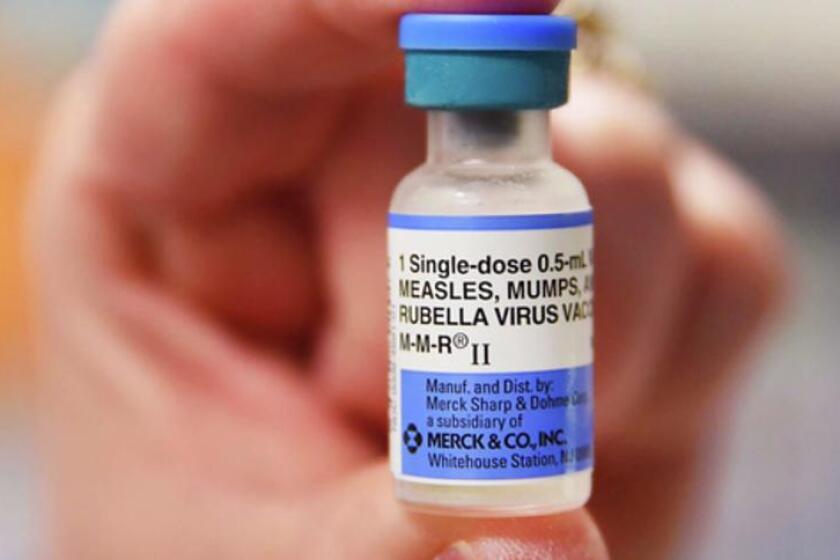
 InForum
InForum
 The Hill
The Hill
 CIDRAP
CIDRAP
 KX News
KX News
New 'Body Clock' Tool Predicts Longevity and Organ Function with High Accuracy
Researchers at the University of Washington have developed the Health Octo Tool, a new method to calculate a person's biological age using physical exam and bloodwork metrics. It predicts disability, geriatric syndrome, and mortality with high accuracy. The tool focuses on 'health entropy,' aiming to provide a comprehensive health assessment, and may allow for tracking the effect of lifestyle changes on aging.

 Earth.com
Earth.com
 Fox News
Fox News
 Medical Xpress
Medical Xpress
 The Guardian
The Guardian
Allergy Seasons Lengthening and Intensifying Due to Climate Change: Expert Insights
This article examines the increasing severity and duration of allergy seasons, attributing it to climate change and rising carbon emissions. It details the specific effects of these factors, such as extended growing seasons and increased pollen concentrations. The piece also provides guidance on differentiating allergy symptoms from cold symptoms and offers practical advice on managing allergy symptoms.

 ABC News
ABC News
 USA Today
USA Today
 The Guardian
The Guardian
 The Economist
The Economist
Dr. Philip Sunshine, Neonatal Pioneer, Dies at 94; Revolutionized Premature Baby Care
Dr. Philip Sunshine, a Stanford University physician, passed away at 94. He revolutionized neonatal care, significantly improving survival rates for premature babies. His pioneering work in the late 1950s and early 60s included developing feeding methods and ventilator use, leading to the establishment of neonatology as a recognized specialty. His efforts dramatically changed the landscape of newborn care.
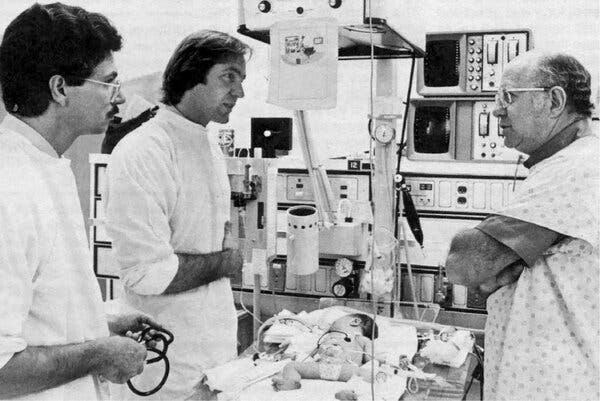
 The New York Times
The New York Times
Emotional Regulation Therapy Significantly Reduces Chronic Pain, Improves Quality of Life
A recent study from UNSW Sydney and NeuRA demonstrates that emotional regulation therapy can significantly reduce chronic pain intensity and improve overall well-being. Participants in the study reported lower pain levels, better emotional management, and enhanced daily functioning up to six months after the intervention. The online therapy offers an accessible, holistic approach to managing chronic pain.

 Neuroscience News
Neuroscience News
 New Scientist
New Scientist
 New Atlas
New Atlas
 The Guardian
The Guardian
Los Angeles County Declares Hepatitis A Outbreak Amid Rising Cases
Los Angeles County is experiencing a Hepatitis A outbreak due to increased cases and elevated virus levels in wastewater. In 2024, cases tripled compared to 2023, and 2025 is on track for even higher numbers. Health officials urge vaccination, especially for high-risk groups, and emphasize the importance of handwashing to prevent the spread of the contagious liver infection.

 Los Angeles Times
Los Angeles Times
 ABC7 Los Angeles
ABC7 Los Angeles
 NBC4 Los Angeles
NBC4 Los Angeles
 FOX 11 Los Angeles
FOX 11 Los Angeles
Long COVID Inflammation: Heart, Lung Changes Found in PET/MRI Scans Up to One Year
A recent study from Mount Sinai indicates long COVID patients may experience inflammation in the heart and lungs for up to a year post-infection, potentially predisposing them to future cardiac and pulmonary issues. Researchers utilized PET/MRI scans to identify abnormalities in cardiovascular and pulmonary tissues, as well as identifying biomarkers in the plasma. These findings suggest long COVID could result in long-term health challenges.

 Health Imaging
Health Imaging
 Mount Sinai
Mount Sinai
 Nature
Nature
 CIDRAP
CIDRAP
Shorter Radiotherapy for Prostate Cancer: 10-Year Trial Shows Equivalent Outcomes
The HYPO-RT-PC trial, a large phase III clinical trial, compared a short-course (2 weeks) to a standard-course (8 weeks) radiotherapy for localized prostate cancer, enrolling 1200 men. After 10 years, the study concluded that the shorter course is as effective and safe as the longer one. The findings suggest patients can return to normal lives quicker with reduced healthcare cost.

 The ASCO Post
The ASCO Post
Gut Viruses, Probiotic Cocktail Linked to Dementia Risk and Prevention Research
Research from USF Health indicates that specific gut viruses may contribute to dementia, particularly as people age. Simultaneously, a probiotic cocktail developed by Dr. Hariom Yadav shows promise in reducing the risk of Alzheimer's disease by improving memory and reducing inflammation in mice studies. Clinical trials and commercialization of the probiotic are being explored.
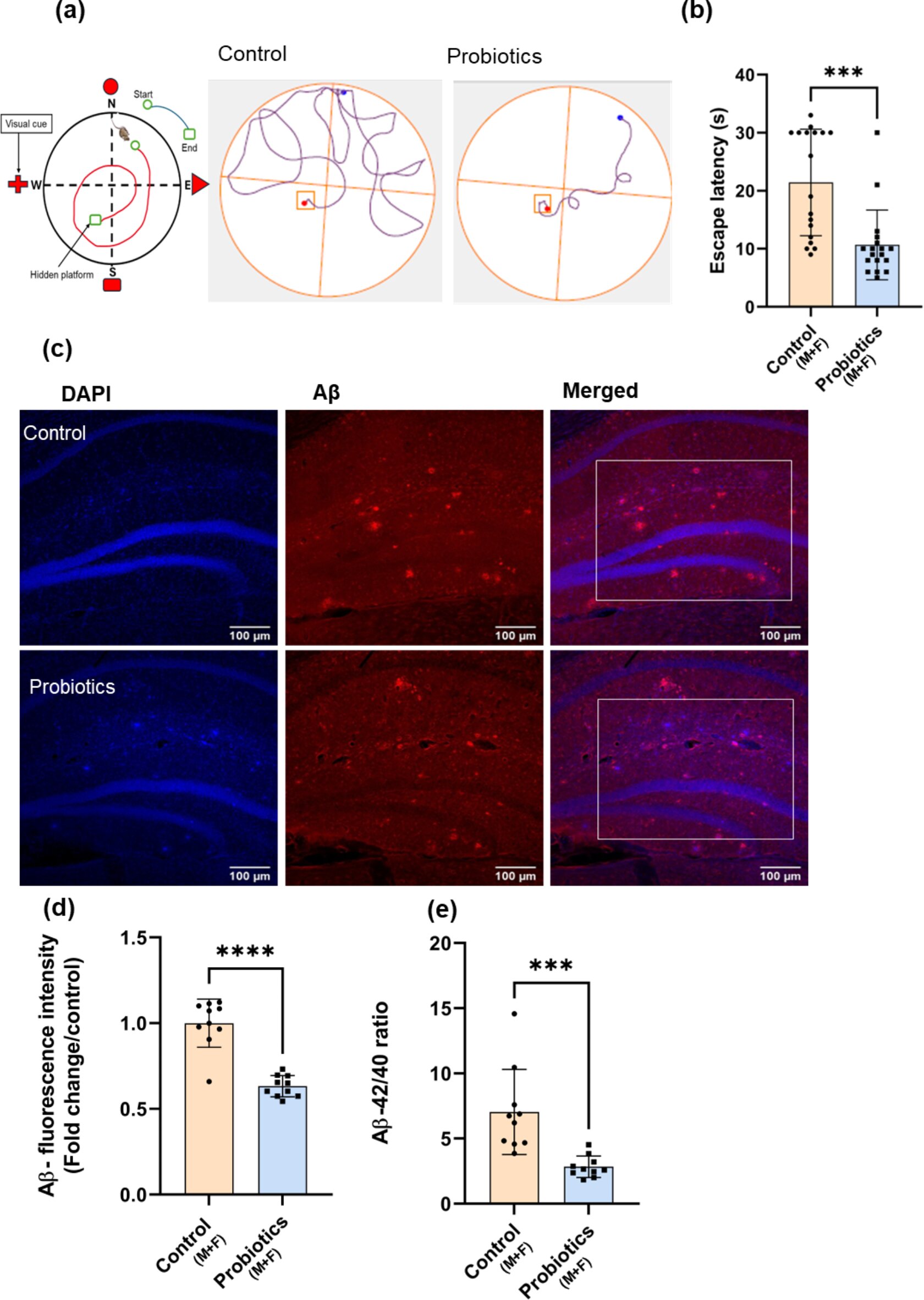
 Medical Xpress
Medical Xpress
 University of South Florida
University of South Florida
 Inshorts
Inshorts
 INDIA New England News
INDIA New England News
COVID-19 Linked to Increased Diabetes Risk; Measles Outbreak in Texas Surpasses 700
The article reports on a study estimating a 1.37% incidence of new-onset diabetes after COVID-19, higher than the general population. It also highlights a significant measles outbreak in Texas, with over 700 cases and hospitalizations, primarily affecting unvaccinated individuals. Additionally, it briefly covers updates on mpox vaccine production, shingles vaccine benefits, and influenza antiviral effectiveness.

 CIDRAP
CIDRAP
Left-Handedness Linked to Early-Onset Neurological Disorders with Language Impairments
A comprehensive meta-analysis indicates a significant association between left-handedness or mixed-handedness and neurological disorders manifesting early in life with language-related symptoms. The study highlights conditions like autism, dyslexia, and schizophrenia, suggesting a link between brain development processes affecting both handedness and language skills, but finds no such link with later-onset disorders like depression.

 Study Finds
Study Finds
 New York Post
New York Post
 RUB Newsportal
RUB Newsportal
 Neuroscience News
Neuroscience News
Shingles Vaccine Associated with Lower Cardiovascular Event Risk: Study
A new study involving over a million participants aged 50 and older in South Korea found that the shingles vaccine (live zoster) is associated with a 23% lower risk of cardiovascular events over an eight-year follow-up period. Protection was strongest in men and younger recipients. Researchers suggest this may be due to preventing shingles-related blood vessel damage and inflammation.

 bestlifeonline.com
bestlifeonline.com
 New Scientist
New Scientist
 CBS News
CBS News
 CIDRAP
CIDRAP
Longevity Expert Dr. Eric Topol Shares Science-Backed Tips for Healthy Aging
This article summarizes advice from Dr. Eric Topol on how to age well based on scientific evidence. It covers topics such as the importance of lifestyle choices over genetics, exercise, diet, sleep, social connections, avoiding toxins and processed foods, and leveraging technology for early disease detection. The article draws from multiple sources to provide a holistic view of Topol's recommendations and the science behind them.
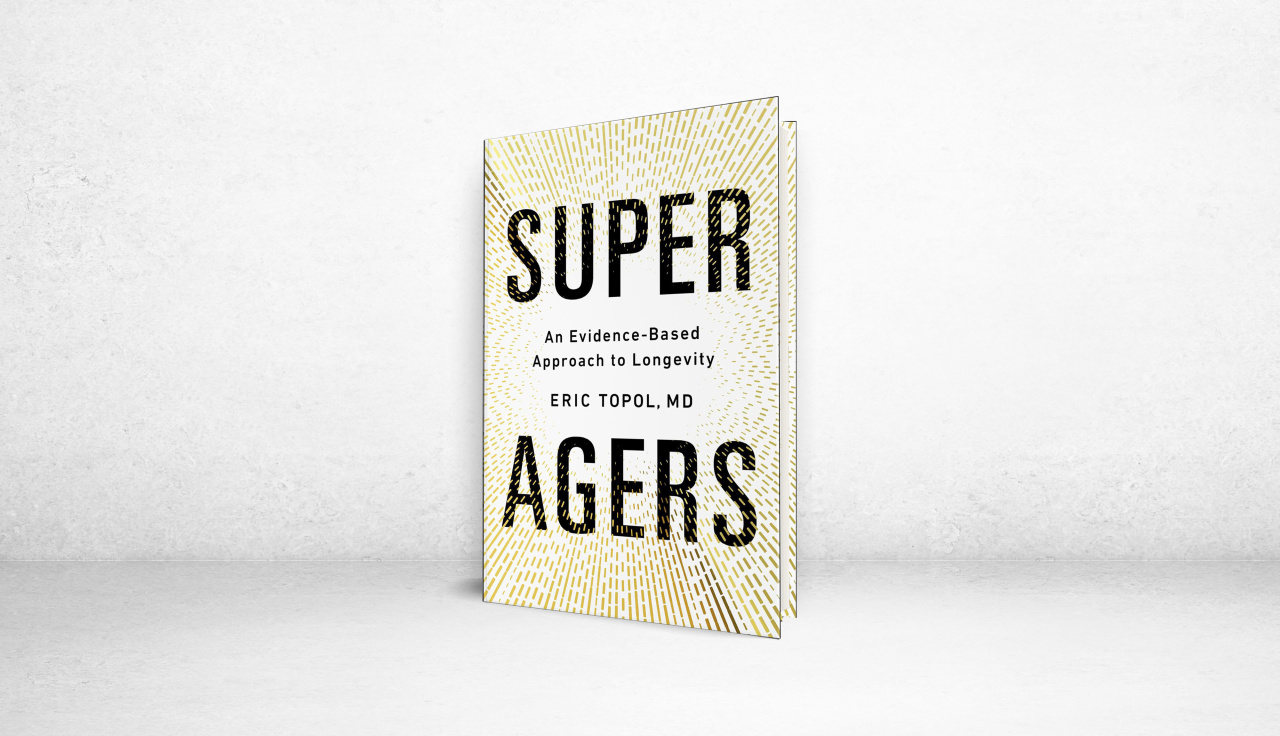
 WSJ
WSJ
 The New York Times
The New York Times
 National Geographic
National Geographic
 TODAY.com
TODAY.com









